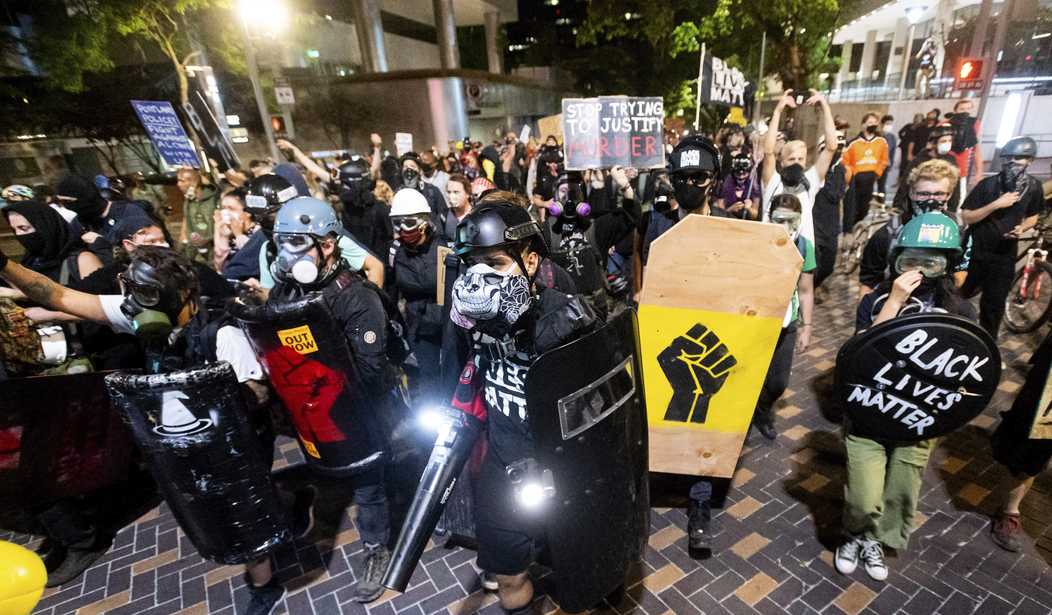Just a few weeks ago, Portland’s KPTV ran a segment about the city’s declining population. “It’s like Portland died,” one longtime resident said in an interview on the street. It’s not as if residents haven’t been letting people know how they feel about the city. A 2020 survey found that 88% of respondents said quality of life in the city was declining. That figure was up sharply from just a couple years earlier.
Voters who think the region is off on the wrong track (62%) far exceed those who say it’s heading in the right direction (16%), with negativity even higher in Portland (76%) than in the rest of the tri-county area (53%). These negative perceptions have grown considerably. In January 2020, just 28% of voters felt the region was headed in the wrong direction. Outlook on quality of life also follows a similar trend, with nine in ten voters (88%) regionwide now saying quality of life is getting worse compared to roughly half of voters (49%) expressing such a negative outlook in January 2020.
Last week, City Journal published an article arguing that the city had turned a corner. As his headline suggested, Portland finally seemed to be sobering up.
Despite ongoing woes, Portland looks and feels much better than it did in dystopian 2020. The riots stopped, and the crime wave seems to have peaked, with shootings down by nearly 40 percent and homicides down more than 50 percent in the early months of 2023…
In the fall of 2022, 82 percent of Portland respondents in an Oregonian poll said that they wanted more cops. If some Portlanders felt overpoliced a few years ago, hardly anyone felt that way after the chaos, with a mere 15 percent saying that they wanted fewer officers in 2021…
Portland is now scrambling to hire as many new police officers as it can, with as close to unanimous approval as one can reasonably expect, though training new hires and shepherding them through the academy will take time. The city is also rolling out new Portland Street Response teams to deal with nonemergency mental-health and behavioral-health calls, which became an increasingly heavy part of the police workload before the cops became too overwhelmed to handle it anymore.
One sign of progress was the voters getting rid of Jo Ann Hardesty, easily the most anti-police member of the City Council.
Pushing bills to defund the police and opposing the cleanup of homeless camps, she put herself wildly out of step with her constituents. Mingus Mapps, a moderate on the council who had easily dispatched the left-wing populist Chloe Eudaly two years earlier, endorsed Hardesty’s challenger, Rene Gonzales, and bluntly said: “It is time to put ideology aside and elect people who will fight for Portland. I need colleagues who use debate, reason, and logic to solve our many crises.” Gonzales said, “Our once beautiful city is struggling in ways that were unfathomable a short time ago. . . . City hall’s ineffective, ideologically driven policies are ruining the city we used to proudly call home.” Gonzales won, and Portland replaced the city council’s last progressive firebrand with a centrist. It was the kind of event that marks the end of an era.
Recently the numbers in opinion surveys have improved slightly.
In a public opinion survey published in February, 78 percent of respondents said that quality of life in Portland was declining—still a terrible number, but 10 percentage points less than a year ago. At least rhetorically, elected officials are taking these problems seriously. “A significant number of people on our streets are very unwell,” the mayor said. “We did this to ourselves, and we did it intentionally with 30 to 40 years of neglect of our mental health infrastructure in our state. It took decades to get where we are, and it’s going to take a long time to dig ourselves out of the hole.”
So maybe things are turning a corner, though as even the mayor has admitted, it’s going to take a long time to fix this mess. Remember, in Portland’s case, the city was dealing with disorder and anti-police sentiment years before the pandemic. I suspect it will take them at least 2-3 more years to turn this around, but in the meantime lots of people will still be leaving, having given up on the old Portland coming back.







Join the conversation as a VIP Member